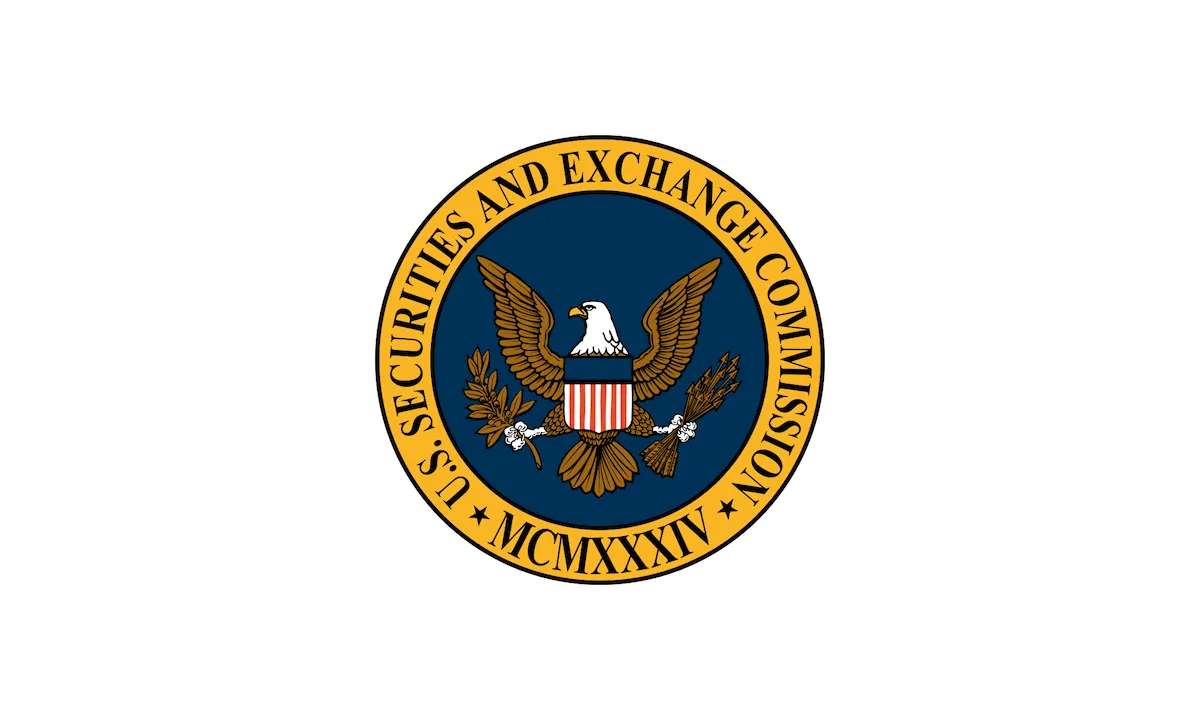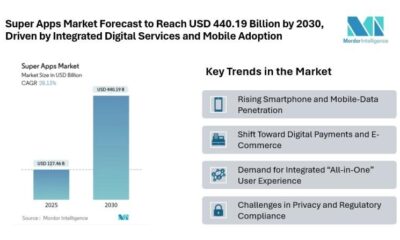Web 3
How SEC Chair Paul Atkins Plans to Shape Digital Asset Regulation

Credit : rss.nftnewstoday.com
In April 2025, Paul S. Atkins was sworn in because the thirty fourth Chair of the U.S. Securities and Trade Fee (SEC), marking a big shift within the company’s stance towards digital assets. Nominated by President Donald Trump and confirmed by the Senate in a 52–44 vote, Atkins takes over from Gary Gensler with a mandate to recalibrate crypto regulation.
A former SEC Commissioner (2002–2008) recognized for advocating cost-benefit evaluation and market-friendly insurance policies, Atkins has publicly vowed to determine a “firm regulatory foundation for digital assets” by a “rational, coherent, and principled” method.
This represents a transparent break from the earlier administration’s technique of “regulation by enforcement,” which drew heavy criticism from the crypto {industry} for its aggressiveness and lack of clear guidelines.
Certainly, Coinbase’s chief authorized officer applauded Atkins’ appointment as “sorely wanted and can’t come a day too quickly”, reflecting the optimism amongst crypto stakeholders.
Atkins brings not solely regulatory experience but in addition direct involvement within the digital asset sector. He helped develop finest practices for the crypto {industry} in his post-SEC profession and even disclosed private investments of as much as $6 million in crypto-related property (together with stakes in a crypto custodian and a tokenization platform) throughout his affirmation.
Whereas this crypto-friendly background indicators an embrace of innovation, it has additionally raised eyebrows. Senator Elizabeth Warren described Atkins’ potential conflicts of curiosity as “breathtaking”, underscoring considerations {that a} extra industry-sympathetic SEC may go too gentle on investor safety.
Balancing these views, Atkins has promised to “return to the fundamentals” of the SEC’s mission – defending buyers, guaranteeing honest markets, and facilitating capital formation – however with a recent technique for digital property.
Beneath, we look at how Chair Atkins is anticipated to control three key classes of rising property: non-fungible tokens (NFTs), gaming-related digital property, and tokenized real-world assets (RWA). We additionally distinction his method with that of former Chair Gensler, highlighting philosophical and strategic variations.
Non-Fungible Tokens (NFTs) – From Crackdown to Readability
Gensler’s Crackdown: Beneath Gary Gensler, the SEC began scrutinizing NFTs as a possible car for unregistered securities choices. In 2023, the SEC introduced enforcement actions in opposition to a number of NFT issuers – for instance, charging Los Angeles-based firm Impact Theory for a $30 million NFT sale that the SEC argued was basically an funding contract (the agency had inspired patrons to view NFTs as an funding in its enterprise).
One other high-profile case concerned the “Stoner Cats” NFT venture, which was fined for elevating funds by NFT gross sales to fund an online collection, deemed by regulators as an unregistered securities providing.
Gensler’s SEC even probed main NFT marketplaces and creators; investigations into OpenSea (the biggest NFT buying and selling platform) and Yuga Labs (creator of the Bored Ape Yacht Membership NFTs) have been launched to find out if sure token gross sales certified as securities.
This aggressive posture despatched a chill by the nascent NFT {industry} – any token, even digital artwork or collectibles, that was marketed with an expectation of revenue may turn out to be an SEC goal.
Atkins’ Shift to Readability: The Atkins-led SEC is poised to take a extra nuanced and measured method to NFTs. Even earlier than Atkins took workplace, the Fee had begun quietly pulling again on some NFT enforcement.
In late 2024, the SEC withdrew sure lawsuits against NFT projects, selecting to order enforcement for less than probably the most egregious instances involving “clear guarantees of returns” or fraud (basically, Ponzi-like NFT schemes).
Furthermore, in early 2025, the SEC dropped its probes into OpenSea and Yuga Labs, a transfer welcomed by the {industry} as an indication of aid. Nonetheless, authorized specialists cautioned that this didn’t imply NFTs have a free move; whether or not an NFT is deemed a safety will “depend upon how it’s bought,” i.e. the specifics of the transaction and the guarantees made to patrons.
In different phrases, an NFT purely functioning as a digital collectible or art work might fall outdoors SEC purview, whereas one bought as an funding with an expectation of revenue may nonetheless be topic to securities regulation.
Atkins seems intent on drawing a clearer line between these two situations. He’s anticipated to prioritize steering over crackdown within the NFT enviornment – offering the market with clearer standards for when an NFT is perhaps thought-about a safety (as an illustration, fractionalized NFTs or those who embrace profit-sharing rights possible nonetheless set off SEC scrutiny).
This extra “rational and coherent” stance stands in stark distinction to the earlier method of casting a large web. By focusing enforcement on outright scams and ponzi-like token schemes, Atkins’ SEC goals to foster a inventive NFT financial system whereas nonetheless policing fraud. Such an method aligns with the brand new Chair’s broader philosophy of not “predetermining financial winners and losers” by overzealous regulation.
It additionally heeds Commissioner Hester Peirce’s name for “clear and affordable boundaries of regulatory authority” in order that compliance is achieved through rulemaking somewhat than courtroom battles. The approaching months may even see the SEC difficulty interpretive steering or perhaps a report on NFTs (analogous to its 2017 DAO Report), clarifying how securities legal guidelines apply on this area.
For NFT creators and marketplaces, Atkins’ tenure up to now indicators a extra open dialogue: the main focus is on transparency and compliance methods going ahead, somewhat than punishing previous gross sales that have been performed in murky regulatory waters.
Gaming Tokens and Digital Belongings – Recognizing Utility vs. Hypothesis
Play-to-Earn or Pay-to-Play (by SEC guidelines)? Digital property in video video games and on-line worlds – together with in-game cryptocurrencies, tokens, and gaming NFTs – type one other frontier of regulation. Beneath the prior SEC regime, these property have been largely seen by the identical lens as different tokens.
Chair Gensler repeatedly asserted that the “overwhelming majority” of crypto tokens are securities, with “all digital property aside from Bitcoin” falling under SEC jurisdiction in his view. This uncompromising stance implied that even tokens primarily used for gameplay or digital items could possibly be deemed securities if, in substance, they concerned an funding scheme.
For instance, if a sport developer bought tokens to the general public to finance sport improvement (with guarantees that the tokens would rise in worth as the sport grew well-liked), the SEC would possible contemplate it an unregistered securities providing.
Beneath Gensler, the SEC didn’t carve out exceptions for “utility tokens” utilized in video games – as regulators usually famous, “merely calling a token a ‘utility’…doesn’t forestall [it] from being a safety”. This lack of distinction sowed uncertainty for blockchain gaming firms.
In reality, by late 2024 the SEC had reportedly prolonged investigations into blockchain gaming corporations like Immutable (a platform for in-game NFTs and tokens), leaving all the Web3 gaming sector not sure of what token actions would possibly set off enforcement.
Atkins’ Stage-Up for Recreation Belongings: The brand new SEC management indicators a larger recognition of the distinction between speculative crypto investments and real in-game utility property. A telling improvement got here in March 2025, when the SEC terminated its inquiry into Immutable and associated gaming tasks, discovering no violations and opting to not pursue enforcement.
Immutable’s president, Robbie Ferguson, lauded this final result as bringing “regulatory readability to the Web3 gaming industry” and predicted it could “drive extra institutional funding” into blockchain video games. The choice means that regulators, underneath Atkins, concluded these gaming tokens weren’t getting used as funding contracts in apply.
It marks a notable shift to a extra permissive (or a minimum of, understanding) stance: if a token’s main perform is for use inside a sport ecosystem (for taking part in, buying and selling in-game gadgets, or rewarding gamers), and never marketed for profit-potential, the SEC is extra inclined to let it’s.
Shifting ahead, we anticipate Atkins will work to articulate clear pointers for gaming-related digital property. The aim is to make sure “utility tokens” get handled by their use-case, not simply by their identify. This might contain components like: whether or not the token is bought to buyers or solely earned by gameplay, whether or not its worth is tied primarily to sport utility or speculative demand, and what guarantees (if any) are made to purchasers.
By partaking with the {industry} – as an illustration, by the SEC’s new Crypto Task Force and public roundtables – the company can refine its method in collaboration with sport builders. Certainly, one of many SEC’s spring 2025 roundtables focuses on “DeFi and the American Spirit”, a dialogue prone to contact on decentralized gaming economies as effectively.
Such dialogue-based governance is a far cry from the confrontational tone of prior years and aligns with Atkins’ intent to control with the market somewhat than in opposition to it.
It’s value noting {that a} extra accommodative method doesn’t imply gaming tokens are fully off the hook. Atkins’ SEC will nonetheless police schemes the place a “sport” is merely veneer for fundraising. Initiatives that promote tokens with grand guarantees (“purchase our tokens now and revenue as our metaverse expands!”) will stay within the crosshairs as potential unregistered securities.
Nonetheless, bona fide gaming platforms integrating blockchain – assume play-to-earn games the place tokens reward gamers for participation – might discover a extra receptive regulator prepared to supply no-action assurances or tailor-made guidelines. By acknowledging the utility facet of those digital property, Atkins goals to keep away from stifling a burgeoning sector that merges tech innovation with leisure.
The broader affect is that firms within the blockchain gaming area can function with much less worry of sudden enforcement, so long as they keep away from treating their gamers like passive buyers. This balanced mindset may preserve the U.S. as a aggressive hub for Web3 gaming improvement, whereas a inflexible Gensler-style method risked driving these tasks abroad.
As one commentator put it, the SEC’s current flexibility is popping a possible “sport over” right into a “sport on” for the crypto gaming industry – albeit underneath affordable guardrails that Atkins believes can defend gamers and buyers alike.
Tokenized Actual-World Belongings – Bridging Conventional Finance and Blockchain
The Promise and Peril of RWA: “Tokenized real-world assets” (usually abbreviated RWA) check with digital tokens that characterize possession of tangible or conventional monetary property – for instance, tokens representing shares of inventory, fractions of real estate, commodities, bonds, and even nice artwork.
This idea holds transformative promise: by placing actual property on blockchains, buying and selling can turn out to be extra environment friendly and accessible 24/7, with probably larger liquidity and transparency. Beneath Gary Gensler, the SEC’s stance on RWA was guarded. Gensler acknowledged that nothing about crypto expertise negates the necessity for investor safety– a tokenized inventory continues to be a inventory, and thus topic to securities legal guidelines.
His SEC didn’t actively oppose tokenization outright, nevertheless it supplied no particular lodging for it both. In apply, that meant any agency providing tokenized securities needed to totally adjust to present registration, disclosure, and alternate laws.
The earlier Fee proposed broad guidelines (equivalent to increasing the definition of “alternate” to seize crypto buying and selling platforms) which, if enacted, may have made buying and selling tokenized property on decentralized platforms unlawful with out broker-dealer registration.
This cautious method, critics argued, left the U.S. behind as different jurisdictions experimented with regulated tokenized bonds or funds. Safety token tasks complained that Gensler’s SEC supplied little steering on how they may lawfully difficulty and commerce tokenized property past telling them to “are available and register” – a course of ill-suited for novel blockchain-based markets.
Atkins’ Embrace of Tokenization: Paul Atkins seems much more obsessed with integrating blockchain into conventional finance. His personal monetary ties underscore this: previous to taking workplace, Atkins had board or fairness stakes in Securitize (a platform for tokenizing real-world property) and a fintech agency referred to as Pontoro. Whereas he has pledged to divest these holdings to keep away from conflicts, the perception he gained from them is prone to inform the SEC’s coverage.
Observers word that Atkins’ appointment “indicators a direct shift towards extra crypto-friendly regulation” and a push to “cut back obstacles to capital and crypto markets”, according to the Trump administration’s aim of eliminating laws that stifle innovation. Within the context of RWA, this implies making a regulatory atmosphere the place tokenization tasks can flourish underneath clear guidelines.
Senator Cynthia Lummis, a number one crypto proponent, mentioned she expects Atkins will “work rapidly to supply regulatory certainty for the digital asset {industry}” – which would come with readability on tokenized shares, bonds, and different devices.
Early indicators of this route are evident. The SEC has scheduled a public roundtable in Might 2025 on “Asset Tokenization and Integration with Conventional Finance”, signaling that the company is actively in search of enter on tips on how to modernize guidelines to accommodate blockchain-based property. Fairly than shunning tokenization, the Fee underneath Atkins is exploring tips on how to harness it safely.
This might contain updating custody guidelines (so brokers can securely maintain tokenized securities), refining disclosure necessities for on-chain issuances, and coordinating with different regulators on points like settlement and market infrastructure.
The brand new Chair has additionally indicated help for legislative efforts to outline digital property in regulation. He might again the proposed “Digital Asset Market Construction Act,” which goals to delineate regulatory jurisdiction between the SEC and CFTC and make clear what counts as a safety token versus a commodity token. By decreasing regulatory overlap and uncertainty, such laws would immediately profit RWA initiatives.
Critically, Atkins’ SEC appears inclined to approve or a minimum of critically entertain progressive tokenized merchandise that have been stalled underneath Gensler. It now has 70+ crypto-related ETF purposes within the queue – starting from spot Bitcoin ETFs to extra unique crypto asset funds – and analysts describe issuers taking a “spaghetti cannon method” to see what the brand new regime would possibly permit.
Exterior of ETFs, companies like Robinhood are “accelerating their push” into choices like tokenized equities, explicitly as a result of the regulatory local weather is “shifting in [their] favor” with Atkins on the helm. This palpable optimism means that tokenized shares or funds, as soon as almost taboo, may quickly hit U.S. markets by correct channels.
Even Wall Avenue giants are vocal – BlackRock’s CEO Larry Fink has touted tokenization because the “way forward for markets,” and with an SEC chief now sympathetic to that imaginative and prescient, collaborations between conventional finance and crypto tech are anticipated to deepen.
In fact, a honest and important evaluation should word that easing the trail for tokenization carries dangers. The SEC might want to be sure that investor protections (disclosures, antifraud provisions, and many others.) stay sturdy on this new medium. Atkins has framed his mission as making the U.S. “the very best and most safe place on this planet to take a position and do enterprise”.
Thus, his method to RWAs will possible pair deregulation within the type of eradicating “pointless obstacles to entry” with vigilance on core protections. We’d see, for instance, streamlined approval for a blockchain-based securities alternate – however coupled with strict reporting requirements and oversight of that alternate’s operations. The web impact could possibly be a win-win: legit asset tokenization ventures get a inexperienced gentle, whereas scams (e.g. sham “tokenized actual property” choices with no actual property behind them) nonetheless get shut down.
If profitable, Atkins’ technique may place the U.S. as a pacesetter within the tokenization of finance, unlocking capital and liquidity in new methods, a lot as his supporters predict.
From Gensler to Atkins: A Philosophical and Strategic Shift
The change in SEC management from Gary Gensler to Paul Atkins represents a tectonic shift in regulatory philosophy. Whereas each males profess the identical statutory mission, their interpretations and ways differ sharply:
Regulatory Philosophy: Gensler maintained that present securities legal guidelines are largely ample for crypto; he famously took the view that just about each digital asset (aside from Bitcoin) is a security by default. Beneath his tenure, the SEC for years declined to put in writing new crypto guidelines or definitions, insisting the {industry} “figured it out” on their very own at their peril.
In distinction, Atkins espouses a philosophy of engagement and replace. He acknowledges that the digital asset market wants a “regulatory basis” constructed on readability and modernized guidelines. Fairly than stretching 90-year-old legal guidelines to cowl each blockchain token, he favors working “with…Congress” to fill in gaps and explicitly “make clear the requirements for distinguishing between securities and non-securities tokens”.
Philosophically, Gensler was extra of a strict constructionist of securities regulation, whereas Atkins is extra of a reformer in search of to adapt the framework to up to date markets.
Enforcement vs. Steerage (Strategic Strategy): Beneath Gensler, the SEC’s main software was regulation by enforcement. The company introduced quite a few high-profile instances in opposition to crypto exchanges (e.g. Coinbase, Binance), token issuers, lending platforms, and even NFT creators, usually with out accompanying steering or rulemaking.
This method, described by many within the {industry} as capricious and opaque, led to accusations that the SEC was successfully making coverage by lawsuits.
Atkins, in contrast, is pivoting in direction of “dialogue-based governance”. Within the first months of 2025, the Fee (led first by Performing Chair Mark Uyeda and now Atkins) dropped or settled a number of crypto enforcement actions – some in opposition to main corporations like Coinbase, ConsenSys, Gemini, and Uniswap have been reportedly halted or reassessed.
Concurrently, the SEC launched a Crypto Activity Pressure to liaise with {industry} and scheduled a number of public roundtables on crypto buying and selling, custody, DeFi, and tokenization. This technique suggests Atkins prefers to set coverage by consensus-building and clear guidelines, utilizing enforcement extra selectively (focusing on fraud and egregious violations) somewhat than as a blanket coverage instrument.
Tone on Innovation: Gensler’s tenure was characterised by a guarded, usually skeptical tone towards crypto innovation. He regularly highlighted the dangers of crypto – fraud, market volatility, investor hurt – and confirmed willingness to sacrifice some innovation with a purpose to implement compliance. In apply, this meant many novel crypto merchandise (from lending yields to tokenized shares) have been stymied or pushed offshore attributable to regulatory worry or uncertainty.
In distinction, Atkins strikes a tone of certified optimism. He has “spoken favorably of blockchain expertise inside monetary techniques” previously and indicators that the SEC shouldn’t impede the expansion of digital asset markets as long as core investor protections are met.
The brand new Chair’s mindset is summed up in a tenet from a current White Home directive: laws “shouldn’t predetermine financial winners and losers” nor “cut back competitors, entrepreneurship, and innovation”. In apply, Atkins’ SEC is extra possible to present the advantage of the doubt to innovators – permitting pilot packages, sandboxes, or exemptions to let new merchandise come to market underneath supervision – whereas Gensler’s SEC was extra prone to say “no” first and ask questions later.
That mentioned, Atkins is just not an uncritical cheerleader: his promise to uphold the SEC’s investor safety mandate means outright speculative mania with out disclosure received’t get a free experience. It’s a extra balanced rhetoric: encouraging accountable innovation, versus Gensler’s emphasis on reining in irresponsible innovation.
Business and Political Reception: The divergent approaches have elicited very completely different responses. Business gamers, who usually felt antagonized by Gensler, have largely welcomed Atkins. As famous, crypto executives described his arrival as a “ray of hope” and U.S. corporations like Robinhood instantly started charting expanded crypto choices in expectation of a friendlier regime.
Beneath Gensler, some firms confronted a selection of compliance puzzles or lawsuits – prompting lawsuits in opposition to the SEC in return (Coinbase sued the SEC for lack of rulemaking, as an illustration) and resulting in courtroom battles that typically undercut Gensler’s claims (e.g. the partial courtroom victory for Ripple in 2023, the place a decide dominated XRP gross sales on exchanges weren’t securities by default).
Atkins goals to keep away from such deadlocks by addressing considerations upfront and mending the SEC’s relationship with the sector. Politically, Gensler’s aggressive stance happy sure lawmakers (many Democrats, like Sen. Warren, praised his powerful enforcement), however drew ire from others (Republican lawmakers regularly accused him of overreach).
Atkins, as a Trump-appointed Republican, enjoys help from pro-crypto legislators who see him as an ally for wise guidelines. Nonetheless, he faces skepticism from staunch crypto critics who fear the SEC would possibly turn out to be too lenient and even “captured” by the {industry}. Throughout his Senate listening to, Atkins acknowledged the “backlash” the SEC had incurred and referred to as some prior practices “disturbing,” vowing to “increase the Fee’s picture” and restore belief.
This means a need to be seen as honest by the broad public – not only a crypto booster – as he navigates between fostering innovation and stopping abuse.
In sum, the place Gary Gensler noticed the crypto world largely as a Wild West to be tamed with the whip of enforcement, Paul Atkins sees a creating frontier that needs to be guided with a extra nuanced hand. Gensler leaned on Twentieth-century interpretations to control Twenty first-century property, usually leading to adversarial showdowns; Atkins is inclined to replace the rulebook for the 2020s, in search of collaborative enter and solely drawing the road when crucial.
This philosophical shift is already manifesting in day-to-day SEC coverage: fewer headline-grabbing lawsuits, extra engagement with {industry}, and a concerted effort to really write laws (or help laws) that tackle digital property explicitly.
Whether or not one method is “higher” will finally be judged by outcomes – can Atkins’ SEC defend buyers as successfully as Gensler’s did, whereas additionally fostering a more healthy atmosphere for innovation? Early indications are promising, however solely time (and sensible execution) will inform if this essential stability might be achieved.
Conclusion
As Paul Atkins assumes the reins of the SEC, the regulatory panorama for digital property is present process a cautious however consequential recalibration. Within the realms of NFTs, gaming tokens, and tokenized real-world property, Atkins’ message is one among “rational” calibration somewhat than blunt-force crackdown. He seems decided to attract clearer traces: distinguishing artwork and collectibles from funding contracts, distinguishing in-game economies from securities markets, and distinguishing real asset tokenization from illegal choices.
This nuanced method, backed by public statements and early coverage strikes, displays an optimism that good regulation can each defend buyers and permit novel markets to thrive. It’s a departure from the prior chair’s philosophy that noticed almost each crypto innovation as a possible risk to be smothered underneath present regulation.
Atkins’ tenure continues to be in its infancy, and being “essential but honest,” one should acknowledge the street forward is just not with out hazards. By easing up on across-the-board enforcement, the SEC dangers making a grey zone – {industry} gamers have to be cautious to not misread regulatory forbearance as a inexperienced gentle for reckless conduct.
As one authorized knowledgeable famous concerning the current enforcement pullbacks, the absence of energetic instances may depart the {industry} in a “vacuum” of uncertainty that solely formal steering or new legal guidelines can fill. Atkins might want to comply with by on issuing that steering and supporting these new legal guidelines; in any other case, the readability he guarantees may stay patchy.
Furthermore, his pleasant stance will certainly be examined the second a significant fraud or market meltdown happens on his watch – the true measure of his method will probably be how swiftly and decisively the SEC responds in such crises, proving that “crypto-friendly” doesn’t imply “fraud-friendly.”
Nonetheless, the strategic variations between Atkins and Gensler are stark and, many argue, refreshing. By realigning the SEC towards rulemaking, public engagement, and focused enforcement, Chair Atkins is charting a course that might make the U.S. a world chief in accountable digital asset innovation.
Already, the change in tone has led to tangible shifts: beforehand reluctant firms are increasing crypto choices domesticallythe-cfo.io, and worldwide observers see the U.S. regulatory stance softening after years of hostility. Atkins’ personal phrases upon being sworn in encapsulate the stability he strives for: “Collectively we’ll work to make sure that the U.S. is the very best and most safe place on this planet to take a position and do enterprise”.
Attaining “the very best” whereas sustaining “the safe” is not any simple job – but when Atkins can present clear guidelines for NFTs, gaming property, and RWAs that legitimize these markets with out inviting abuse, he’ll certainly have engineered a pivotal regulatory evolution.
In evaluating the 2 eras – Gensler’s and Atkins’ – a good conclusion is that neither excessive enforcement nor whole laissez-faire is a viable long-term technique. The SEC’s credibility is dependent upon defending buyers and fostering honest, orderly markets. Gensler hammered the primary level, arguably on the expense of the second; Atkins is now tilting again towards the middle.
His early initiatives (dropping marginal instances, convening roundtables, articulating guiding rules) have set a constructive tone. The approaching yr will reveal how this interprets into concrete coverage – be it new safe-harbor guidelines for tokens, approvals of long-pending crypto ETFs, or clearer definitions distinguishing a sport coin from a inventory.
The digital asset {industry} and its skeptics alike ought to keep engaged on this course of. A sustainable regulatory framework for digital property within the U.S. would require enter and compromise from each side of the aisle and each side of the crypto debate.
In steering that course of, Paul Atkins has positioned himself as a practical referee, one who understands the sport however is unafraid to name fouls. His tenure presents a essential alternative to get crypto regulation proper – a possibility solid in distinction to his predecessor’s path, and one which, if executed properly, may gain advantage buyers, innovators, and the markets at massive.
-

 Meme Coin7 months ago
Meme Coin7 months agoDOGE Sees Massive User Growth: Active Addresses Up 400%
-

 Blockchain1 year ago
Blockchain1 year agoOrbler Partners with Meta Lion to Accelerate Web3 Growth
-

 Videos1 year ago
Videos1 year agoShocking Truth About TRON! TRX Crypto Review & Price Predictions!
-

 Meme Coin1 year ago
Meme Coin1 year agoCrypto Whale Buys the Dip: Accumulates PEPE and ETH
-

 NFT10 months ago
NFT10 months agoSEND Arcade launches NFT entry pass for Squad Game Season 2, inspired by Squid Game
-

 Solana4 months ago
Solana4 months agoSolana Price to Target $200 Amid Bullish Momentum and Staking ETF News?
-

 Ethereum1 year ago
Ethereum1 year ago5 signs that the crypto bull run is coming this September
-

 Gaming1 year ago
Gaming1 year agoGameFi Trends in 2024



































